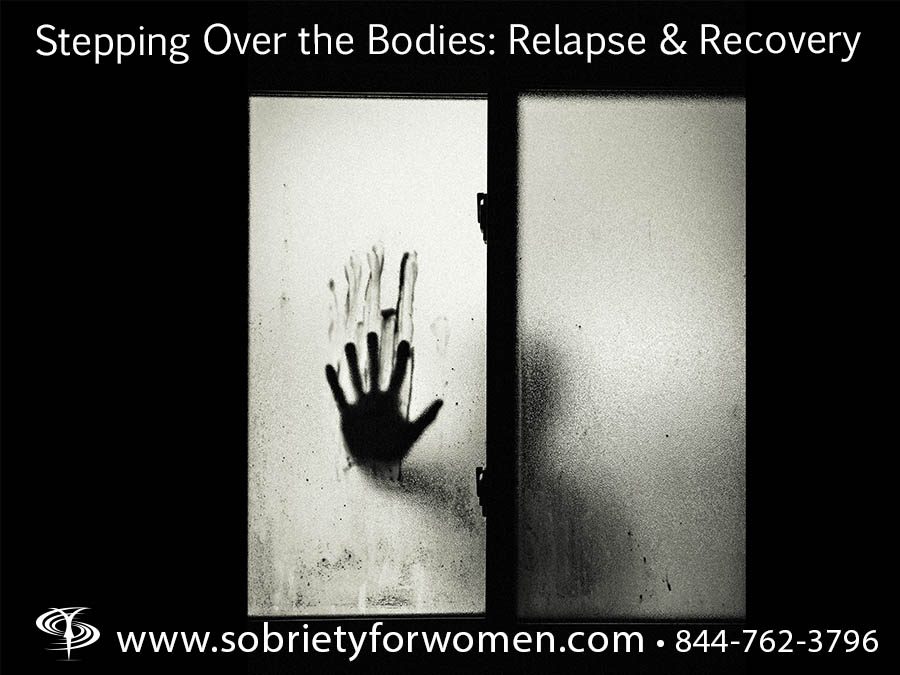What Do I Do If a Loved One Relapses?
Relapse is a part of recovery. It’s an unfortunate part, but a part nonetheless. It’s like the sky being blue, grass being green, or Taco Bell being the tastiest fast food. Addicts and alcoholics relapse. It’s that simple.
So, what happens when someone close to us relapses? It could be a family member, friend, roommate, significant other, sober support, or even a sponsor. What happens to us when they pick up that drink? What are our options?

This is a selfish way of looking at things, but an absolutely vital one to preserve our own sobriety! This goes double if you’re in early-sobriety when a loved one relapses.
What do we do? Find some of my (hard won) advice below. I hope it helps!
Limit Contact
This one’s kind of obvious, but limit your contact with a relapsing loved one! Now, this might be hard depending on who it is that decided to pick up a drink or drug. It’s one thing to limit contact with a friend, it’s a whole other thing to limit contact with a significant other!
If it’s at all possible, don’t spend as much time with them. See them only in social settings. Don’t hang out with them late into the night. Take these general precautions to protect your own sobriety!
These might sound harsh, but remember – it’s easier for a relapsing loved one to take us out, than it is for us to get them back into the rooms.
Don’t See Them Alone
This goes along with limiting contact. Don’t hang out with your relapsing loved one alone!
I know what you’re thinking. “But So and So loves me! He or she would never use around me. I’ll be fine!” Guess what? You’re probably right. 99% of the time you will be fine. It’s that 1% that makes seeing a relapsing loved one alone dangerous.
Remember, you’re dealing with the disease of addiction and alcoholism. It overwhelms us all. It doesn’t matter how much your loved one cares about you. If they’re drinking and drugging, all that love goes out the window. That’s just how it is.
Seek Professional Help
Seeking professional help can take a few different forms depending on who in your life relapsed.
Let’s say it’s your significant other. Well, then seeking professional help could include going to marriage therapy, going to couples therapy, joining a support group like Al-Anon, or simply placing your loved one in treatment.
Let’s say it’s a friend that relapsed. If that’s the case, seeking professional help could take the form of attending a support group, going to more twelve-step meetings, or even planning an intervention (with an interventionist, of course!).
Let’s say it’s a family member. In this case, maybe you should attend family therapy. Whatever form it takes, don’t be afraid to turn to the professionals. After all, there’s a reason they’re called professionals!
Encourage Them!
This might also be kind of common sense, but I see it get neglected a lot! Remember, your loved one is in a lot of emotional, mental, and spiritual pain. They’re drinking, using, and engaging in harmful and selfish behavior. They could use some kind words!
So, if someone close to you starts drinking or drugging, tell them some of the things your sponsor tells you. It’ll help more than you know.
Pray For Them

And here we’ve reached the most important thing (in my humble opinion anyway!) you can do for a loved one who’s relapsing. Pray for them! It’s that simple.
Alcoholism and addiction are diseases of powerlessness. Addicts and alcoholics are powerless over drugs and booze. They’re powerless to say no. They need something more powerful than they are to help.
That’s where a God of our own understanding enters the picture. This God is much more powerful than any drug or drink.
So, say a prayer for your loved one. It’s one of the simplest, and most powerful, things we can do!

